Politics
Canada’s PM Pushes “Build, Baby, Build” Strategy to Counter Trump
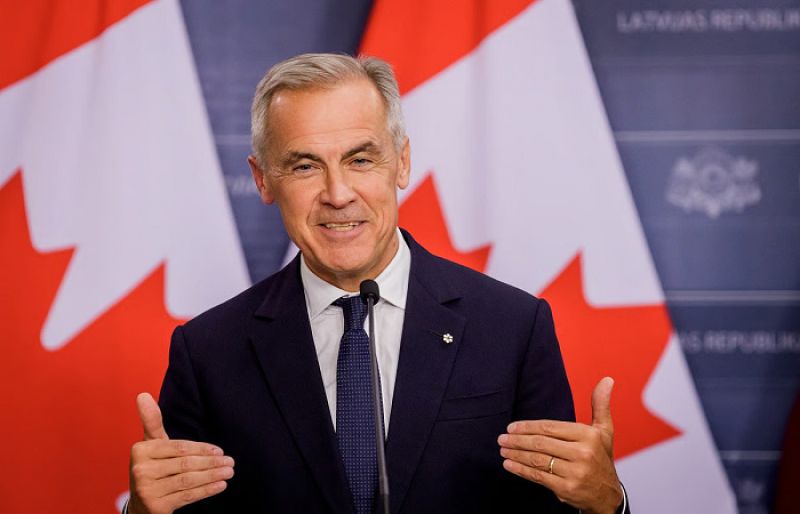
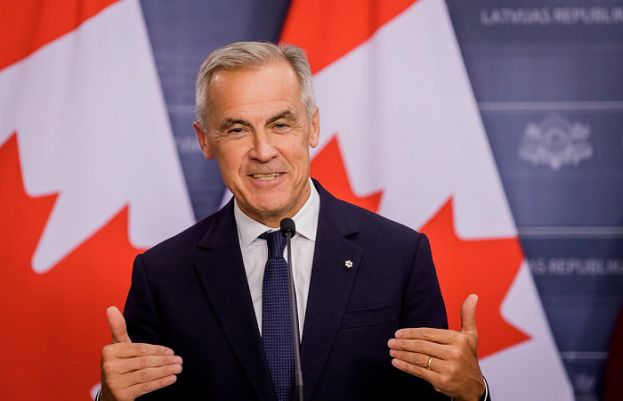
On the night of his election victory, Canada’s Prime Minister Mark Carney outlined his vision to boost the country’s economy in response to President Donald Trump’s challenges.
“Build, baby, build!” Carney told a cheering crowd of Liberal Party supporters in April.
In the first weeks of his term, Carney’s plans have started to take shape, highlighted by the launch of the new “Major Projects Office” last month.
The office will oversee construction initiatives including ports, highways, mines, and potentially a new oil pipeline a move that has drawn scrutiny from environmental groups.
The office, which will soon announce its top priorities, was established after Carney’s Liberals gained cross-party backing for legislation allowing the government to fast-track “nation-building projects.”
“We are moving at a pace not seen in generations,” Carney said, stressing the urgency needed as Trump reshapes the global economy.
While Trump’s threats to annex Canada have eased, his ongoing trade war continues to impact the Canadian economy. U.S. tariffs on autos, steel, and aluminum have hit these key sectors, causing job losses.
Canada’s unemployment rate reached 7.1 percent in August, the highest level since 2016 outside the pandemic.
“That adds to evidence that the trade war is taking its toll on Canadian labor markets,” said RBC senior economist Claire Fan.
Economy in focus
Since entering politics earlier this year, Carney has emphasized that Canada must reduce its decades-long reliance on U.S. trade by boosting domestic commerce and exploring new markets in Europe and Asia.
During a visit to Germany last month, Carney highlighted that his government is “unleashing half a trillion dollars of investment” in infrastructure projects spanning energy, ports, and other critical sectors.
Jay Khosla, an energy expert at the Public Policy Forum, said the momentum to build would not have been possible without Trump.
“We know our economy is in peril,” he said, noting Canada was effectively “captured economically,” because of its closeness to the United States.
Energy superpower?
Canada is the world’s fourth largest oil exporter and its crude reserves are the world’s third largest.
Most of its resources are in the western province of Alberta, which exports almost exclusively to the United States, as Canada lacks the infrastructure to efficiently get energy products to other foreign markets.
Former prime minister Justin Trudeau, Carney’s predecessor, put climate change at the center of his political brand and faced criticism from some over his perceived lack of support for the energy sector.
In a shift from the Trudeau era, Carney’s Liberals now support exporting liquefied natural gas (LNG) to Europe.
“What we heard loud and clear from German LNG buyers and LNG users is they believe there is demand and they want to buy our products” Energy Minister Tim Hodgson said in Berlin last week.
Carney has repeatedly said Canada “can be an energy superpower.”
But not everyone is enthusiastic about that plan.
Greenpeace has accused the prime minister of backing “climate-wrecking infrastructure” while ignoring clean energy.
Carney could likely press ahead despite concerns from pro-climate NGOs, but support from Indigenous leaders for whom safeguarding the environment is top priority — is seen as essential.
Despite Carney’s efforts to secure Indigenous backing for his major projects push, their concern persists.
“We know how it feels to have Trump at our border. Let’s not do that and have Trump-like policies,” said Cindy Woodhouse, the national chief of the Assembly of First Nations, in a swipe at Carney’s backing for energy infrastructure.
“Let’s take the time and do things properly.”
Politics
Bangladesh’s student-led party allies with JI ahead of election
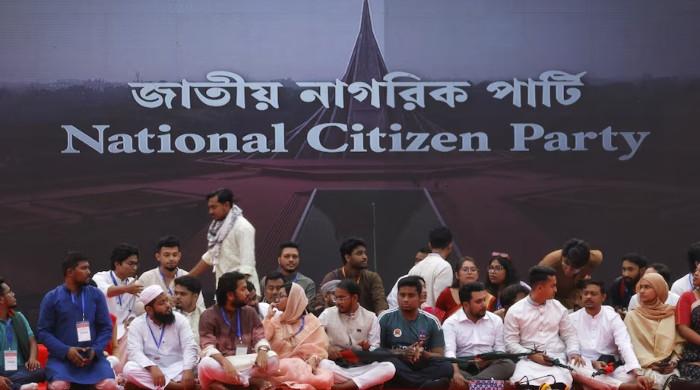

- NCP chief says final list of candidates to be announced on Monday.
- Tasnim Jara, several other leaders quit NCP in protest.
- Critics of NCP’s move say it undermined party’s founding ideals.
DHAKA: The student-led Bangladeshi party born out of the protest movement that toppled Prime Minister Sheikh Hasina has forged an electoral alliance with Jamaat-e-Islami ahead of February’s parliamentary election, stirring internal rifts.
Since last year’s uprising, the National Citizen Party (NCP) has cast itself as a centrist, reformist alternative to nepotism and two-party dominance, but as the election nears, it is struggling to turn street power into voter support.
NCP chief Nahid Islam said on Sunday the party had decided to enter into the alliance for greater unity, adding that the final list of candidates would be announced on Monday. Other NCP figures have described the alliance as a pragmatic step in a fragmented political landscape.
But the decision to join forces with JI has already prompted internal ructions.
Tasnim Jara, a doctor who left a career in Britain to join the NCP, becoming a leader in the party, resigned on Saturday and said she would contest the election as an independent candidate. Several other members have also quit.
BNP regains momentum
Critics of the NCP’s move said it undermined the party’s founding ideals.
“The moral support I had for the NCP will no longer exist due to this ideological mismatch,” said one university student, asking not to be named.
The partnership comes amid broader political realignments, with the Bangladesh Nationalist Party (BNP) — aligned with ailing former Prime Minister Khaleda Zia and effectively led by her son, acting chair Tarique Rahman — regaining momentum following Rahman’s return after nearly 17 years in exile.
The February 12 election will be held under an interim administration headed by Nobel laureate Muhammad Yunus, who took charge after Hasina’s ouster and is seen as crucial to restoring political stability after nearly two years of turmoil.
Politics
Row deepens over vanished river wave in Munich
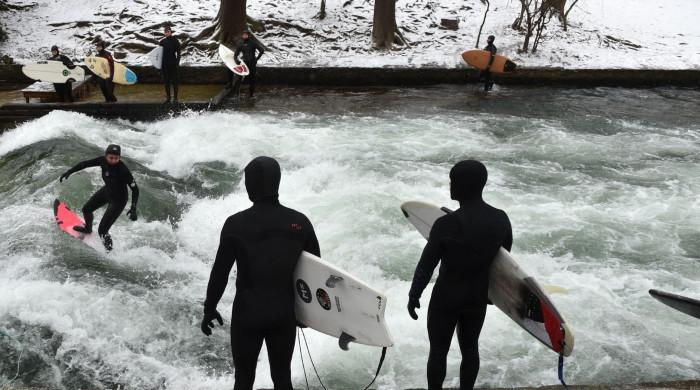
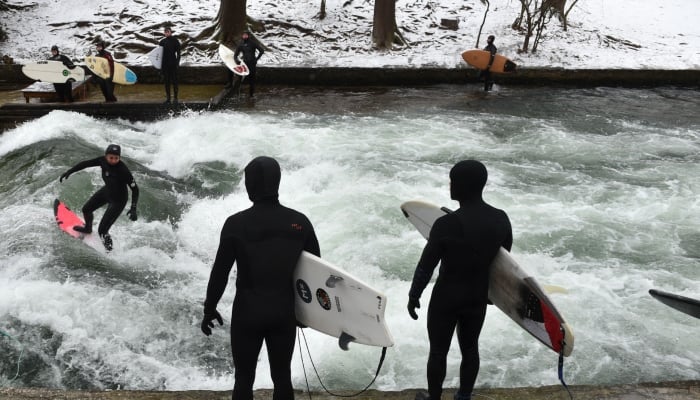
A row over the disappearance of a famous river surfing wave in Munich escalated on Sunday as authorities removed a beam inserted over Christmas to recreate the attraction.
The Eisbach wave on a side branch of the Isar River had been a landmark in the Bavarian city since the 1980s but it vanished in October after annual cleanup work along the riverbed.
Activists had placed a beam in the water early on December 25 to partially recreate the wave, according to German media reports, and hung a banner above the water that read “Merry Christmas”.
But a spokesman for the Munich fire service told AFP the “installation was removed” on Sunday at the request of city authorities.
Activists have made several attempts to reinstate the wave in the city’s Englischer Garten park since October — only to see them reversed.
The local surfers’ association IGSM on Thursday posted a statement on its website saying it had abandoned its campaign to save the wave, accusing city authorities of dragging their feet.
The Eisbach wave was considered the largest and most consistent river wave in the heart of a major city and had become a tourist attraction in Bavaria’s state capital.
Franz Fasel, head of the IGSM, told AFP in July that 3,000 to 5,000 local surfers were using it.
Access to the wave was cut off for several months earlier this year after the death of a 33-year-old Munich woman who became trapped under the surface while surfing at night.
Politics
Three Iranian satellites launched from Russia
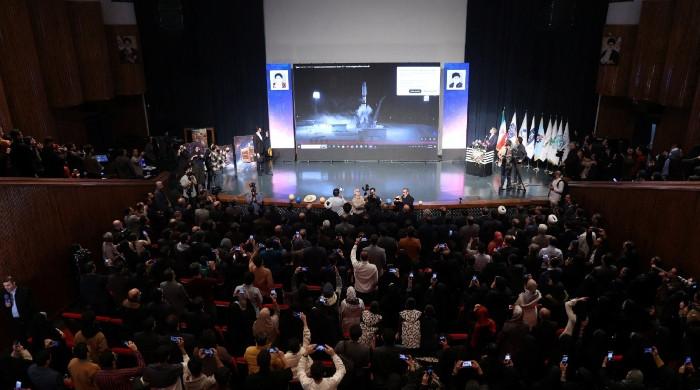
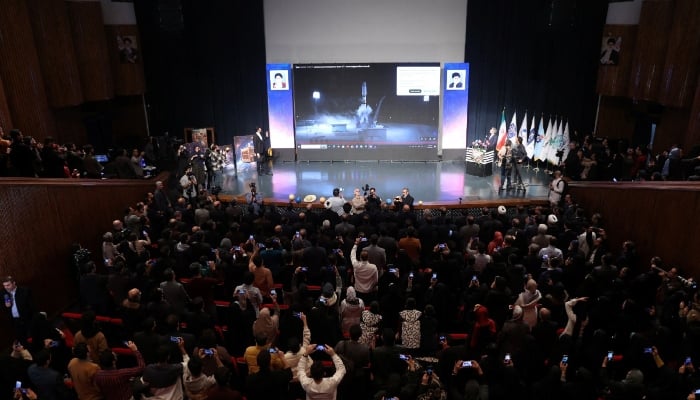
- Iranian scientists produce satellites despite sanctions: envoy.
- Three satellites are for low-earth orbit, says state news agency.
- Iran increasingly relies on Russia to put satellites in orbit.
DUBAI: Three more Iranian satellites were sent into space on Russia’s Soyuz launchers on Sunday, Iranian state media said, as the two US-sanctioned nations extend their space collaboration.
Iran has increasingly relied on its ally Russia to put satellites in orbit in recent years, with the latest three intended to help with monitoring agriculture, natural resources and the environment.
“These satellites were designed and produced by Iranian scientists … despite all the sanctions and threats,” Iran’s ambassador to Russia Kazem Jalali told state TV in reference to Western measures over Tehran’s nuclear programme.
“We are working together (with Russia) in different areas. Some are evident and some we don’t like to clarify.”
Iran’s official IRNA news agency said the three satellites – Paya, Zafar 2,and a second Kowsar – were for low-earth orbit.
Since Russia’s invasion of Ukraine in 2022, Iran and Russia have deepened ties, with Western countries accusing Iran of providing missiles and drones for Russian attacks.
-
Sports1 week ago
Alabama turned Oklahoma’s College Football Playoff dream into a nightmare
-

 Entertainment1 week ago
Entertainment1 week agoRare look inside the secret LEGO Museum reveals the system behind a toy giant’s remarkable longevity
-

 Business1 week ago
Business1 week agoGold prices in Pakistan Today – December 20, 2025 | The Express Tribune
-

 Entertainment1 week ago
Entertainment1 week agoZoe Kravitz teases fans with ring in wedding finger
-

 Entertainment1 week ago
Entertainment1 week agoIndia drops Shubman Gill from T20 World Cup squad
-

 Tech1 week ago
Tech1 week agoWe Tried and Tested the Best Gifts for Plant Lovers With Our Own Green Thumbs
-

 Fashion1 week ago
Fashion1 week agoColumbia launches star-studded US Curling team uniforms for 2026
-

 Sports2 days ago
Sports2 days agoBrooks Koepka should face penalty if he rejoins PGA Tour, golf pundit says






